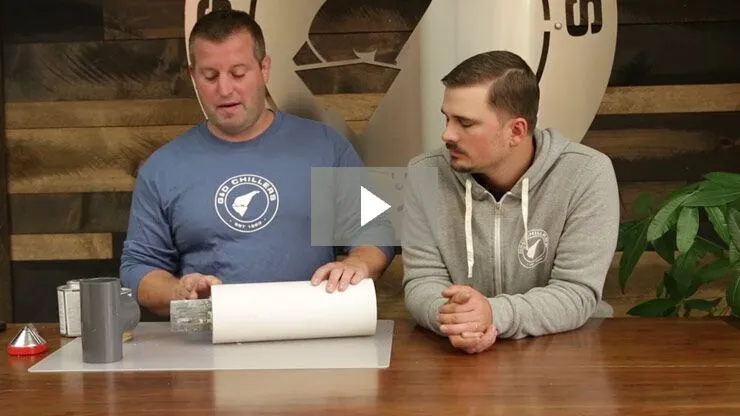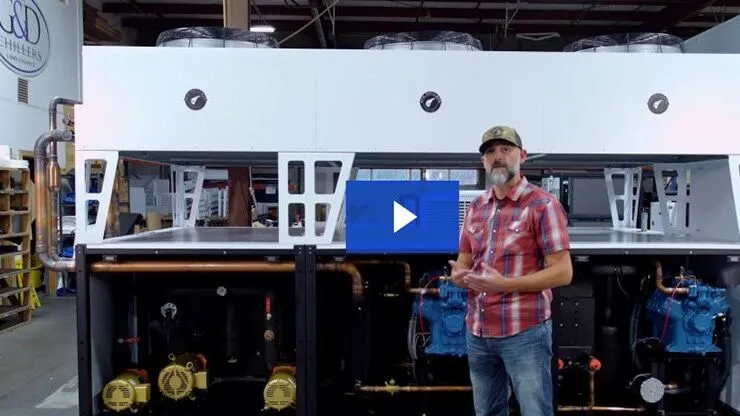WE ARE COMMITTED TO COLD AND WANT TO SHARE SOME OF THE MOST FREQUENTLY ASKED QUESTIONS WITH YOU TO HELP SERVICE YOUR GLYCOL CHILLER.
G&D Advantage
Frequently Asked Questions
What is glycol?
Glycol is an antifreeze. There are two main types of glycol: propylene and ethylene. In food applications propylene glycol is used as it is non-toxic. Ethylene glycol is typically used in industrial applications.
What is the proper glycol to water percentage or mixture?
G&D Chillers recommends a 35% Inhibited Propylene Glycol to 65% water (24.75 brix). Measure the solution using a glycol refractometer.
Where do i set or install my chiller?
The chiller location needs to be on a flat, level surface, typically outside on a concrete pad. It can be installed on a roof, but this will require a roof capable for supporting the chillers operating weight. Make sure you contact your local municipality for any city and state regulations.
Does chiller placement matter?
Yes! Be mindful of air flow when deciding where to place the chiller. Overhangs can prevent air rejection, so Vertical Air series chillers should not be placed underneath them. Similarly, there should be no obstructions in front of the exhaust side of horizontal discharge units. Refer to your chiller manual for more detail.
What is the lead time to build my new chiller?
This varies depending on the time of year. A typical lead time is 4-6 weeks.
How much maintenance does a package chiller require?
Maintenance is minimal. Measure the glycol mixture quarterly throughout the year. Keep the condenser clear of obstructions and free of leaves and debris. It is good to establish a relationship with a qualified technician in your area. Yearly inspections after the first or second year are a good idea. G&D partners with multiple service companies throughout the country if you need a recommendation.
Learn more about glycol chiller maintenance, read the full article here.
Do you provide consultation on how to pipe my glycol supply and return and tanks?
We will fully design and size your supply and return mainline with the purchase of your chiller. We work directly with you and your team to ensure that the system is installed correctly. Contact us directly to discuss our pre-insulated piping options.
What size chiller do i need?
There are many variables involved with the sizing of a Glycol Chiller. We have a team ready to ask you the questions to determine your precise requirements.
What is a btu?
British Thermal Unit: The amount of energy needed to cool or heat one pound of water by one degree Fahrenheit.
What does it mean when someone says you need a 5 ton chiller?
A refrigerated ton is a measurement of BTUs, where 1 ton = 12,000 BTU/hr. It is important to know how many BTUs a particular chiller can produce at your required leaving glycol/water temperature.

Installation of PVC Joint

Dairy Industry Chiller Overview with Andy

G&D Chillers – Heat Reclaim Overview with Paul

Installation of PVC Joint

Installation of PVC Joint

Installation of PVC Joint

Installation of PVC Joint

Installation of PVC Joint



